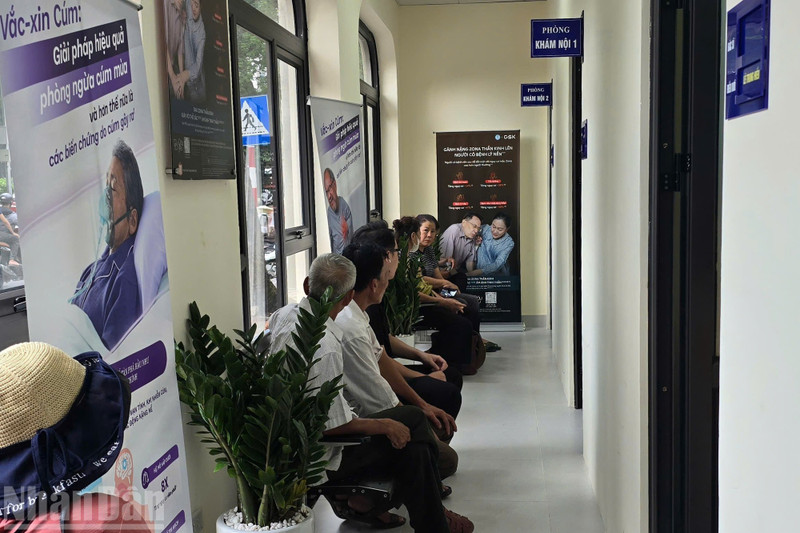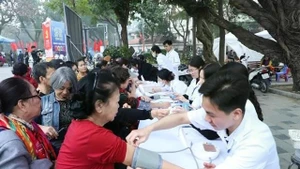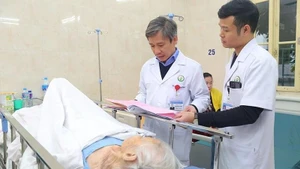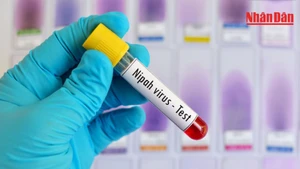Proactive healthcare enhances treatment effectiveness
The disease examination and treatment model oriented towards community-based healthcare and the management of multiple comorbidities is gaining increasing attention. The implementation of general health screening examination that integrate multiple specialties, such as cardiology, interventional cardiology, oncology, gastroenterology, respiratory diseases, and traditional medicine, enables early detection and timely treatment of many common diseases.
From this perspective, Doctor Duong Huy Luong, Deputy Director of the Department of Medical Service Administration under the Ministry of Health, said that as living standards improve, people’s essential needs include health check-ups and treatment. While investing in early screening may seem costly, early detection significantly reduces treatment costs and make treatment much more effective.”
He cited cardiovascular diseases as an example, which require prevention from level zero. Once these diseases manifest and then get worse, treatment becomes much more difficult.
Sharing the same view, Senior Doctor Nguyen The Anh, Director of Huu Nghi Hospital, stated that according to the guidelines of the Party, the state, and the Ministry of Health, the healthcare sector must focus not only on treatment but also on the proactive promotion of prevention.
At Huu Nghi Hospital, many cases have been early detected small tumours or coronary and cerebral artery lesions without obvious symptoms, allowing for complete treatment before complications arose. These cases are clear evidence of the value of early check-ups, which the on-demand healthcare model is aiming for.
Additionally, in a context where many infectious diseases remain prevalent in Viet Nam, especially among the elderly and those with underlying diseases, vaccination must be recognised for its full value, as it is an effective solution for early disease prevention, which helps in reducing complications and treatment costs.
People actively seek regular screenings and check-ups
To meet these demands, Huu Nghi Hospital has established its On-Demand Medical Examination and Treatment Department and Vaccination Unit to serve the people's growing need for preventive healthcare and high-quality medical services.
Nguyen The Anh, Director of the hospital, shared that this model offers a wide range of high-quality healthcare services delivered by experienced doctors in specialties such as cardiology, neurology, and orthopaedics.
With the support of a 3.0 Tesla MRI system and a 256-slice CT scanner, early detection of damage in the brain, heart, blood vessels and internal organs can be carried out with high accuracy, contributing to more effective treatment.
From full-body tumour screening to assessments of coronary and cerebral artery narrowing, each technological advancement not only shortens diagnostic time but also improves patients’ survival prospects.
The on-demand medical department also caters to those seeking premium healthcare services, combining traditional medicine to care for and recover patients' health in the long term.
In addition, on-demand vaccination implementation for all ages is an essential service, especially the elderly and people with underlying diseases.
"Zona, which manifests as blisters on the skin, is actually a form of nerve damage caused by the virus. If left untreated timely, it may result in neurological complications. For the elderly, the risk of contracting diseases like flu or pneumonia due to respiratory infections is extremely high, so early vaccination helps prevent outbreaks, as illustrated by the spread of Covid-19,” Doctor Nguyen The Anh explained.
The increasing application of modern medical techniques, combining advanced diagnostic technologies with highly specialised personnel, reflects the healthcare sector’s shift towards a proactive approach that puts patients at the centre. This is the inevitable path of modern healthcare: prioritising disease prevention, early detection, and sustainable healthcare for the community.
















